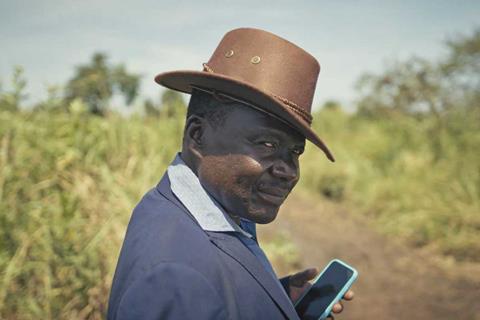A legal and ethical minefield surrounds the trial of a former Ugandan child soldier by the International Criminal Court

Dir/scr: Lukasz Konopa, Emil Langballe. Denmark/Germany. 2023. 104mins
Dominic Ongwen was just nine-years-old when he was abducted by Joseph Kony’s Lord’s Resistance Army (LRA) in Uganda and forced to become a child soldier. He rose through the ranks to became a notorious rebel commander, the perpetrator of numerous war crimes. It is for these crimes – 70 counts in all, including torture, rape and murder – that Ongwen faced the International Criminal Court (ICC) in The Hague, the first former Ugandan child soldier to be convicted and sentenced by the ICC. It is, as this excellent, thought-provoking film shows, an ethical and legal minefield. Ongwen, traumatised and brainwashed as a young child, is a victim. But he also committed a litany of unimaginable horrors. How culpable is he for his crimes?
Balances courtroom footage against a detailed and far-reaching portrait of Uganda
It’s an impressive and assured film from Lukasz Konopa (making his feature documentary directing debut) and Emil Langballe (whose documentaries include The Wait and Q’s Barbershop, which showed at CPH:DOX in 2019). Shot over six years, the film balances courtroom footage against a detailed and far-reaching portrait of Uganda, with Ongwen’s charismatic defence lawyer Krispus Ayena taking a central role. The picture should be of considerable interest to human rights themed festivals and events – following its debut at CPH DOX, it shows in Belgium’s Docville, One World International Film Festival in the Czech Republic, and the Movies That Matter Film Festival in The Hague. Theatrical interest is also likely.
The facts of the case, and the list of charges read out in the cool, sterile courtroom, are unavoidably stark. Ongwen became one of Kony’s most valued lieutenants – a role which required a level of cruelty and ruthlessness that is hard to process. But the film embraces and explores the complexity of Ongwen’s situation: there’s a striking visual and tonal contrast between the monochrome precision of the court scenes, and the vivid chaos – and occasional impressionistic imagery – of the footage captured in Uganda. The question is, can the European-based ICC grasp the complexities and tensions in Uganda, many of which stem from colonisation and European meddling in the first place?
Ayena argues that the role of ‘spiritualism’ is crucial in understanding what made Ongwen grow into the man he became. Children in the LRA were conditioned to believe that Kony was omnipresent and, through a network of spirits, he could see them at all times. The indoctrination, argues Ayena, combined with early exposure to harrowing violence meted out on those who tried to escape, effectively robbed the child soldiers of their free will.
The film follows Ayena as he travels throughout Uganda gathering testimonials from those directly affected by the violence in the country. And what becomes clear is that not all support the ICC’s decision to prosecute Ongwen. There’s an argument in favour of a ‘restorative’ approach to justice rather than the punitive ‘retributive’ approach favoured by European law.
And the ICC itself comes under scrutiny for aligning itself with governments that are friendly to Western powers. Why, is the recurring question, is the ICC solely prosecuting members of the LRA, when the government forces of President Yoweri Museveni are allegedly guilty of crimes against the Ugandan people every bit as horrific as those of Kony’s rebels? There are no easy answers to the legal conundrum with which the ICC has to wrestle. But Ayena succeeds at least in one of his aims: “To let them know that there is a problem in Uganda.”
Production company: Made in Copenhagen
International sales: Dogwoof info@dogwoof.com
Producer: Helle Feber, Heidi Kim Anderson
Cinematography: Kasper Czubak
Editing: Michael Aaglung
Music: Markus Aust, Rasmussen Patrick Vejen

























No comments yet